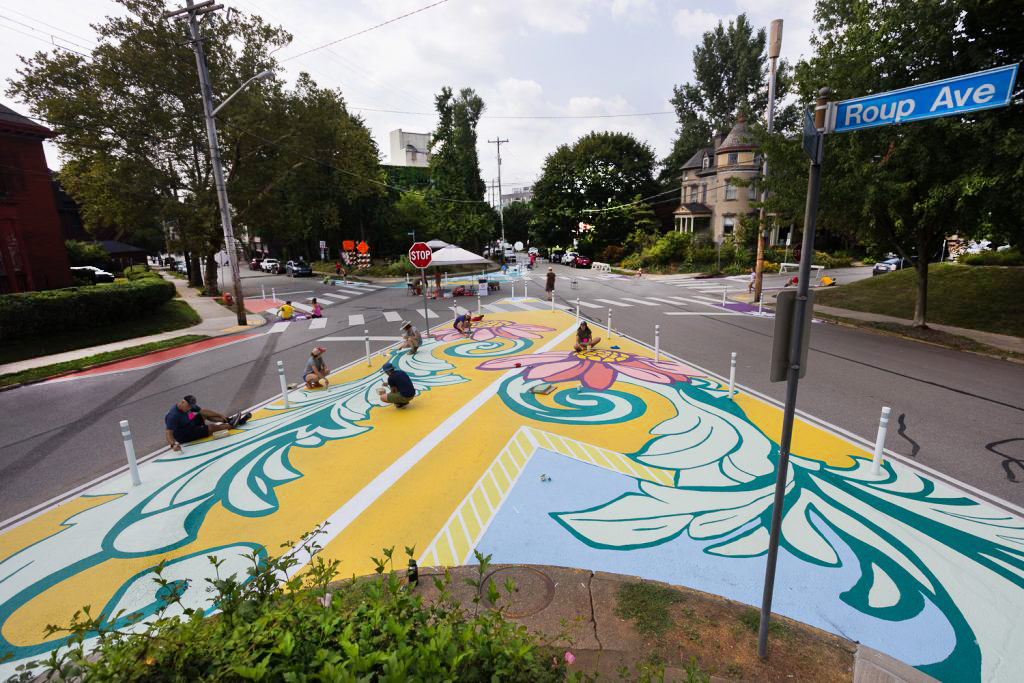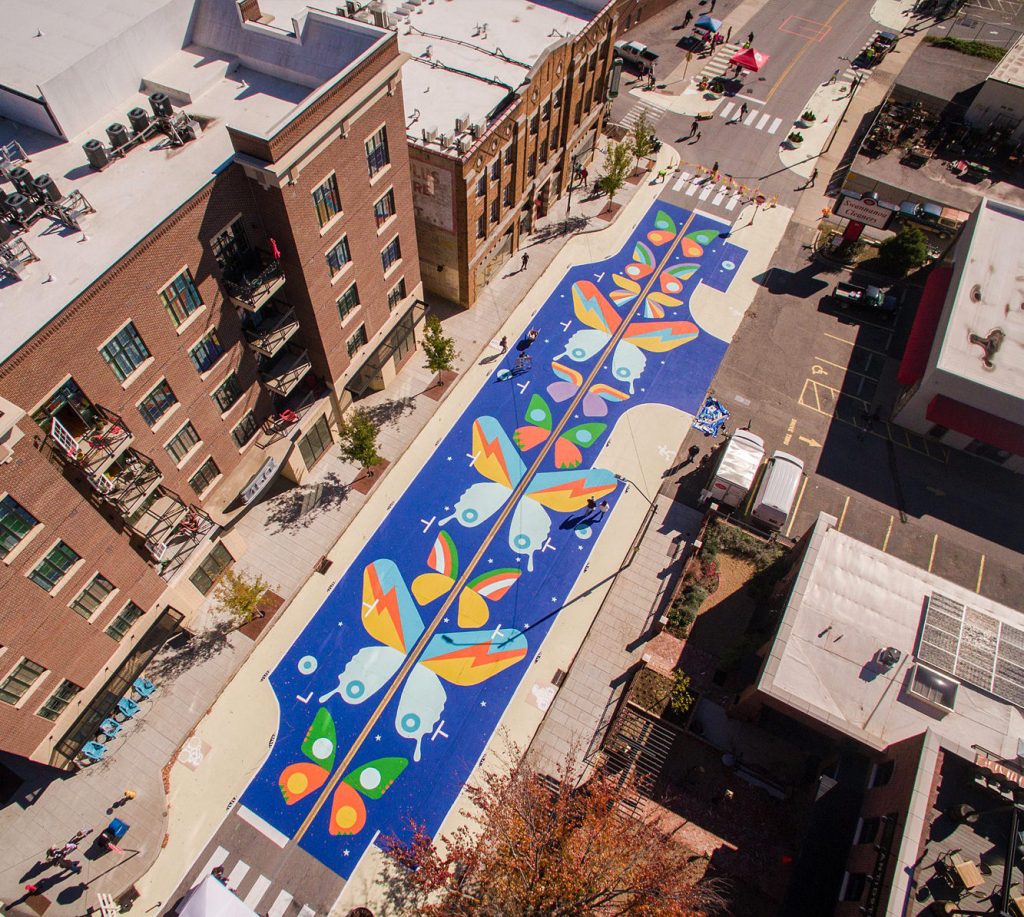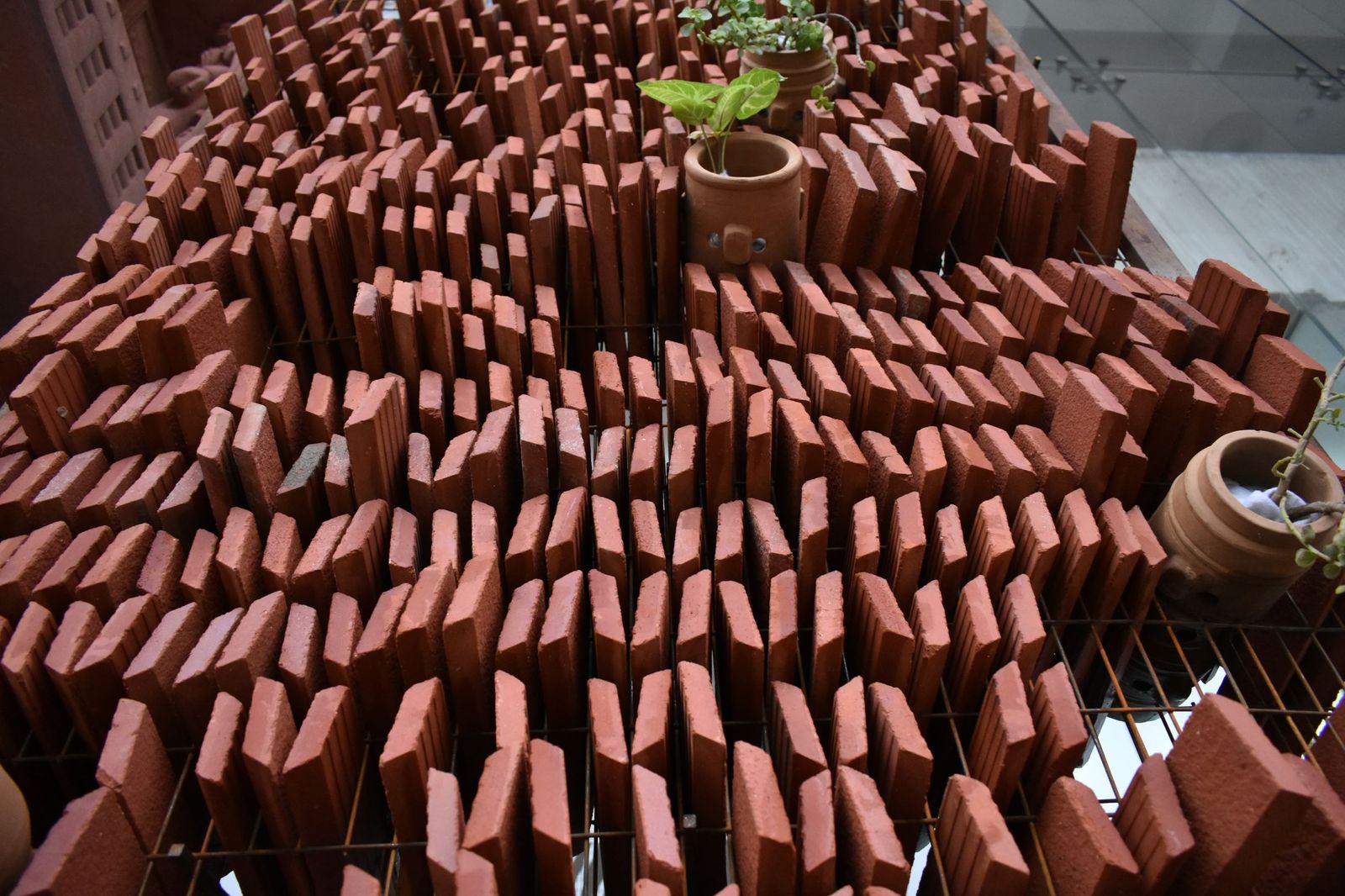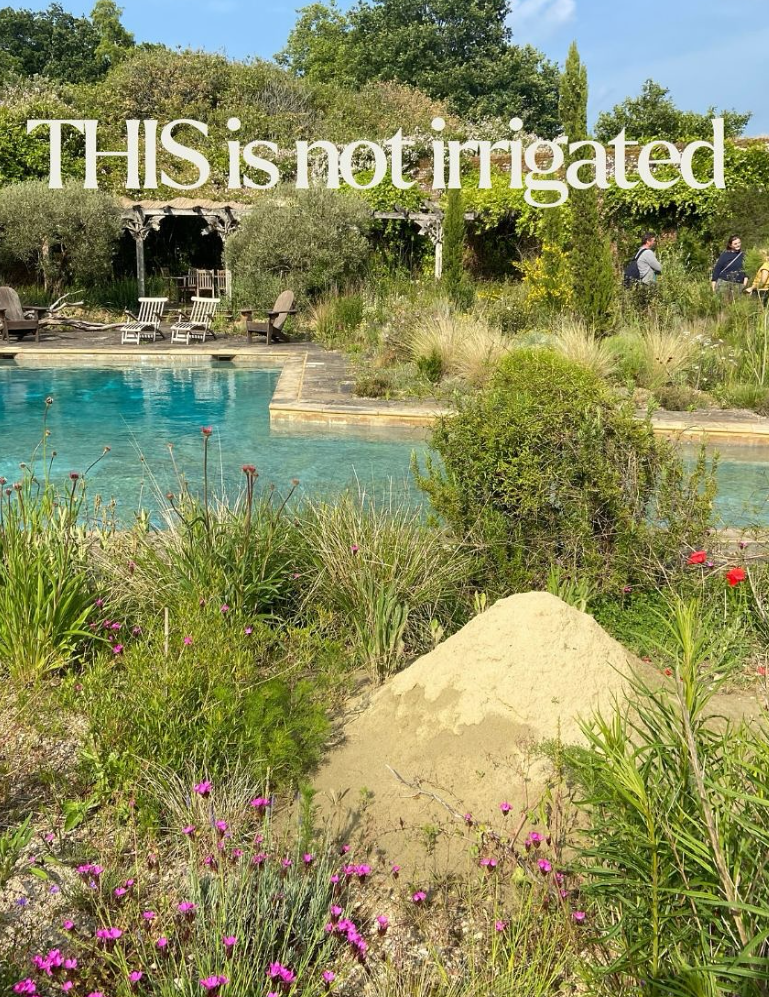June in landscape architecture brought bold street art initiatives and climate-smart design ideas like terracotta cooling and drought planting. Plus, explore a range of learning opportunities coming up in July.

On Wednesday, 23 July, from 4-5pm AEST, Small Giants Academy will host a free online webinar titled “Nature’s Architect: The Role of Biomimicry in Urban Design”. Part of the “Future of Cities” series, the event features Amanda Sturgeon, CEO of The Biomimicry Institute, in conversation with Paul Hameister, founder of Nature Based Cities. Together they’ll explore how nature’s design principles can inspire regenerative, resilient, and harmonious urban environments. Moderated by Danny Almagor, the session invites urban designers, architects, and changemakers to reimagine cities as living systems that learn from and integrate with nature.
The Australian Institute of Landscape Architects (AILA) is hosting a free webinar on Thursday, 31 July 2025, from 12-1pm AEST. This session will address the challenges value engineering poses to landscape projects, focusing on maintaining quality, durability, and safety. Industry leaders from Christie Barbecues, Street Furniture Australia, and Eureka Landscapes will share insights and case studies. Attendees will learn to craft robust specifications, understand manufacturers' roles in supporting design outcomes, and navigate cost constraints without compromising long-term quality. The webinar includes a live Q&A and will be recorded for later access. It's open to all professionals involved in public space design and delivery.
The American Society of Landscape Architects (ASLA) offers a pre-recorded webinar titled Local Leadership on Climate and Biodiversity: Lessons from Nunavut, Vancouver, and Toronto, recorded on June 26, 2025. Thissession features Canadian landscape architects discussing regional strategies for advancing biodiversity and climate goals. Topics include Nunavut’s Climate Adaptation Plan, Vancouver’s Blue Green systems, and Toronto’s performance standards for low-carbon, resilient development. The webinar emphasizes equitable planning involving Indigenous and underserved communities. Participants can access a quiz, earn a certificate, and complete an evaluation. The webinar is free for ASLA members and costs $50 for non-members.

The Australian Institute of Landscape Architects (AILA) will host an online workshop on Thursday, 24 July 2025, from 2:30-5pm AEST. The workshop will cost $230-$340 depending on whether you are an AILA member or not and you must RSVP by 22 July 2025. Led by Barkandji researcher and writer Zena Cumpston, the session explores Indigenous relationships with plants and cultural landscapes, while encouraging participants to reflect on colonisation’s impact and their own positionality. Designed to support respectful collaboration and decolonial practice, the workshop is especially relevant for emerging professionals. Attendees will gain insights into power imbalances, access learning resources, and build cultural competence to engage meaningfully with Traditional Owners and Indigenous knowledge.
The American Society of Landscape Architects (ASLA) is offering a live webinar on Wednesday, 16 July 2025, at 1pm EDT. This session, presented by Nick Maletta of Holmes Murphy and moderated by Tanya Olson, ASLA, will explore the growing presence of AI in landscape architecture firms, whether intentionally adopted or not. The discussion will cover current AI tools, potential impacts on daily operations, risk and liability considerations, and strategies for responsible integration. Participants will have access to a quiz, certificate of completion, and an evaluation form. The webinar is free for ASLA members and costs $50 for non-members.
The American Society of Landscape Architects (ASLA) is offering a timely webinar roundtable discussion with five firm leaders featured in the 2024 ASLA Industry Report. Scheduled for Thursday, 17 July 2025 at 1pm EDT, the 60-minute session will unpack how the profession is navigating economic shifts, evolving client demands, workforce challenges, and supply chain disruptions. Attendees will gain insights into adaptive business strategies, recruitment and retention efforts, and how firms are managing costs, timelines, and expectations. The webinar is free for ASLA members and $50 for non-members.
Bloomberg Philanthropies has awarded $100,000 grants to 10 cities across Canada, Mexico, and the U.S. through its “Asphalt Art Initiative”, supporting public art projects that enhance street safety, revitalise public spaces, and engage communities. Selected cities include Cleveland, Lynn, Portland, Santa Barbara, Ottawa, Winnipeg, Mexico City, Monterrey, Hermosillo, and Culiacán. Projects range from transforming intersections with colorful murals to incorporating cultural motifs in urban design. In Santa Barbara, for instance, the grant will fund an installation at State and Carrillo Streets, celebrating Mexican and Mixteco heritage while improving pedestrian safety.
See feature image for example of past project and below.

Foster + Partners, in collaboration with artist Yinka Shonibare and landscape architect Michel Desvigne, has been selected to design the national memorial to Queen Elizabeth II in London’s St James’s Park. The winning proposal features a translucent cast-glass bridge inspired by the Queen Mary Fringe tiara, replacing the existing Blue Bridge. The memorial will also include a statue of the Queen at the newly designated Queen Elizabeth II Place at Marlborough Gate, and a joint statue of the Queen and Prince Philip at the newly named Prince Philip Gate on Birdcage Walk. Additional elements encompass a wind sculpture by Shonibare, a "Communities of the UK" garden, a Commonwealth garden, and a Prince Philip Gate garden.
Richard Weller, the influential Australian landscape architect, educator, and author, passed away on 15 May 2025 in Perth, leaving behind a transformative legacy that reshaped the field. As Professor Emeritus at the University of Pennsylvania and co-founder of the Ian L. McHarg Center, Weller championed ecological urbanism and challenged conventional design thinking. His notable projects include the Garden of Australian Dreams in Canberra and the Perth foreshore masterplan. A prolific writer, he authored nine books and over 150 academic works, with recent research focusing on the tension between biodiversity and urban growth.
India-based firm CoolAnt is reviving ancient terracotta cooling methods to create climate-responsive building systems that can reduce electricity use by 30–70% and lower indoor temperatures by up to 15 °C. Inspired by traditional earthen pots and beehives, their system uses water and terracotta cones to cool air through evaporation—offering a sustainable, low-tech alternative to air conditioning in schools, offices, and public spaces across India.
Also see this article.

David Godshall, co-founder of Californian landscape architecture firm Terremoto, argues that the discipline is "broken" due to its detachment from local contexts and communities. In a recent Monocle article, he critiques the trend of landscape architects working far from their home regions, leading to designs that lack regional authenticity and ecological sensitivity. Godshall advocates for a localised approach, emphasising that landscapes should be created "by, of, and for" the communities they serve. A notable example is Terremoto’s Denver 17th Street Corner Plaza - an urban garden that champions local materials, low carbon impact, and the often-overlooked labour behind landscape construction.
A new book, “Messy Cities: Why We Can’t Plan Everything”, challenges the idea that great cities must be tightly controlled - arguing instead that spontaneity, improvisation, and even disorder are essential to vibrant urban life. Edited by Dylan Reid, Zahra Ebrahim, Leslie Woo and John Lorinc, the anthology features 43 global voices exploring how graffiti, desire lines, sidewalk vendors, and “guerrilla” urbanism can enable creativity, inclusion, and resilience. It asks: what if the messiness we try to plan out is actually what makes a city thrive?
Garden designer Melanie Hick reminds us that drought isn't just a challenge - it can be a design opportunity. Reflecting on her 2024 Climate-Forward Garden at the RHS Hampton Court Show and a recent study day at Knepp, she shares how low-water, full-sun plants can create tough, beautiful, insect-friendly gardens that thrive without high-maintenance favourites like hydrangeas. Her message? The obstacle - low water - is the way forward for resilient, climate-conscious planting.

Get concise summaries of the latest news, projects, and trends in landscape architecture, delivered straight to your inbox.